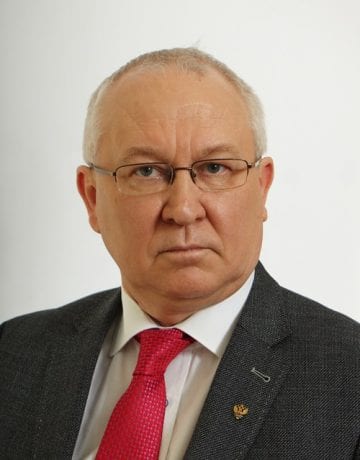80 years of the Moscow agreement on Ålands

Mikhail G. Zubov,
Ph.D., Consul of the Russian Federation on the Åland Islands
It will be 80 years in 2020 since the Agreement between the Soviet Union and Finland on the Åland Islands was signed on 11 October 1940 in Moscow. It has become one of the most important legal framework documents of the demilitarised status of the Åland Archipelago. According to this Agreement, Finland undertook upon itself a commitment to demilitarise the Åland Islands.
It is now over 150 years that the demilitarised status of the Ålands has remained unchanged de-jure:
– according to the 1856 Convention on demilitarisation of the Åland Islands (article 1), the Islands are not be fortified, and no military or military naval installations or bases are to be kept or established there;
– according to the Convention on non-fortification and neutralisation of the Åland Islands as of 20 October 1921 (article 3), no installation or operational base, military or naval, no air force installation or operational base equally as any other device or equipment intended for military purposes can be kept within the zone (demilitarised zone of the Åland Islands) specified by article 2 of the Convention. Certain international law experts admit that since UNO is not a legal successor of the League of Nations, which has approved the 1921 Convention, provisions that cover the obligations of the signatories regarding the defence of neutrality (which is closely linked to the demilitarised status of the Åland Islands) may be considered null and void after the dissolution of the League of Nations in 1946. Moreover, the Russian Federation which had not been invited to the negotiations sent in 1921 a note to the countries – signatories of the Convention, by which declared it (the Convention) “non-existent for Russia”.
– according to the 1940 USSR – Finland Agreement (article 1), the Finnish side pledged “to demilitarise the Åland Islands, not to fortify them, and not to put them at the disposal of the armed forces of foreign states.” In accordance with the Agreement, a Soviet Consulate was established in Mariehamn.
In 1941, Finland joined the war against the USSR on the side of Germany, which terminated the validity of the 1940 Agreement, and the Åland Islands were remilitarised. Finland deployed its troops there, which meant that martial law was imposed on the Archipelago. The Soviet Consulate could not operate in those conditions according to peacetime laws, and on 24 June 1941 its personnel was evacuated. In September 1944, Finland ceased fighting on the German side, and the USSR and Great Britain, of the one part, and Finland, of the other part, signed a ceasefire agreement. Article 1 of it stipulated that the validity of the Moscow Agreement on the Åland Islands has been redintegrated.
The population of the Islands met the redintegration of the Agreement with approval. At the opening session of parliament (lagting) it was stressed that the undivided opinion of the Åland people, bolstered by traditions, has always firmly upheld the idea of the Åland Islands being demilitarised. In October 1944, a Soviet Consul arrived in Mariehamn and the Consulate resumed its work.
Since then, the Åland Islands has become, and still remain, the “Islands of Peace” in the eyes of the whole world. Equally, since then either side has officially registered no cases of the violation of the demilitarised status of the Islands.
The Treaty of Peace with Finland signed in Paris in 1947 reinforced the demilitarised status of the Islands yet more, while the intergovernmental Russian-Finnish Protocol of 1992 concerning the inventory of the contractual basis of Russian-Finnish relations confirmed the survival of the 1940 Agreement. Thus, this document became not only the cornerstone of the contractual basis of the demilitarised status of the Åland Islands, but also the important international law element of ensuring security in the Baltic region.
In the end, it should be emphasised that neither the Soviet Union, nor the renewed Russian Federation has ever violated the 1940 Agreement. Starting from 1991 a renewed Russia has the right to maintain on the Islands a consulate the competence of which coveres beyond regular consular functions the supervision of the fulfilment of the commitments stated in the 1940 Agreement.
As for the Russian Consulate in Mariehamn set up in accordance with this important document, its relevant role remains unchanged. Despite the fact that it is the most small-numbered Russian consular mission in the world, its functions remain highly demanded, while the Consulate, on its part, seeks to carry out successfully the tasks it is charged with. For the past 80 years, a priority for the Consulate has remained the monitoring of the demilitarised status of the Archipelago in accordance with the 1940 Moscow Agreement on the Åland Islands. Retaining by Russia the control functions over the demilitarised status of the Ålands undoubtedly meets the interests of the international community in strengthening peace and stability in the Baltic region.
Expert article 2651
